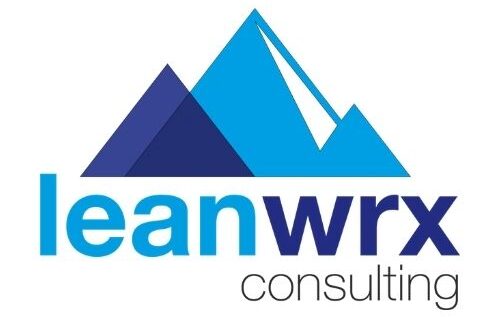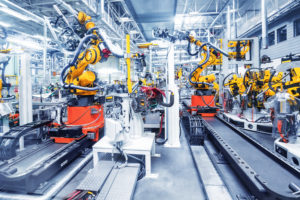March 21, 2023
Industry 5.0 and AI are terms that futurists often toss around as the next wave of innovation in Manufacturing. They’re not wrong. The innovations that bookend the term Industry 5.0 often include some amazing technologies that showcase what is possible in the Manufacturing space. Technologies such as Artificial Intelligence, Blockchain, and Cybersecurity focus more on the machine element of Manufacturing than ever before. To make the best use of these tools, it is truly important to have good processes that are ‘inputs’ to the Industry 5.0 systems and technologies. In other words, you can’t throw a new application or system over a poorly managed process and expect great results. Lean Management is a very scalable and adaptable model for implementation in any business, especially a business looking toward the future.
Lean Management is a philosophy that aims to increase efficiency and reduce waste in production processes. This approach has proven highly effective for large and small businesses, but its benefits to mid-sized firms are often overlooked. Below we will discuss the benefits of Lean Management for Small and Medium-sized businesses (SMBs) and provide tips and techniques that business owners can implement for a high Return on Investment.
Maximizing Value
Before we discuss the main benefits, we really need to start by defining the term Value. Many Lean tools focus on maximizing the value added to a product or service. Now, here is the tricky thing… the Customer defines value. Think about it this way, if you’re in the drive-thru of your favorite burger joint, you have a certain expectation of what that burger is going to look like, taste like, cost like, and have a pretty decent expectation of when it is going to arrive at the next window. Any task that helps achieve those objectives maximizes value to the customer. This is a grossly simplified example, but it helps get the point across! We will cover the 8 Major value-killers in another article!

Increased Efficiency
Lean manufacturing focuses on the elimination of waste in production processes. By reducing waste and optimizing flow, businesses can produce more with fewer resources, increasing throughput. This efficiency can lead to higher productivity, faster lead times, and lower costs, all while eliminating costly bottlenecks on the shop floor. For example, a mid-sized business implementing Lean techniques could reduce its production time by 50%, resulting in a significant increase in output.
To achieve this, business owners can implement techniques such as Value Stream Mapping, which helps to identify and eliminate non-value-adding activities in the production process. Additionally, using the 5S methodology, which stands for Sort, Set in Order, Shine, Standardize, and Sustain, can help to improve workplace organization and effectiveness.

Reduced Costs
Lean manufacturing helps to reduce costs by eliminating waste and increasing efficiency. This includes reducing overproduction, excess inventory, defects, and unnecessary motion. Businesses can reduce their costs by implementing lean techniques such as just-in-time (JIT) production, which involves producing what is needed when it is required.
To reduce costs, business owners can also consider implementing Total Productive Maintenance (TPM), which focuses on maximizing equipment efficiency and reducing downtime. Companies can reduce maintenance costs, improve equipment reliability, and extend equipment life by implementing TPM.
Improved Quality
A significant focus of Lean manufacturing is on producing products of the highest quality. Businesses can improve customer satisfaction and build a strong reputation for quality by reducing defects and errors. This can lead to increased sales, repeat business, and improved profitability.
To improve quality, you must control the variability in your processes. Business owners can implement techniques such as Poka Yoke, or mistake-proofing, which involves designing processes and products to prevent errors and defects. Additionally, quality control techniques, such as statistical process control (SPC), to monitor and control process variability.

Increased Flexibility
Lean manufacturing helps mid-sized businesses to be more flexible and responsive to customer demand. By implementing lean techniques such as Kanban, which involves using visual signals to manage production and inventory levels, mid-sized businesses can quickly respond to changes in customer demand.
To increase flexibility, business owners can also consider implementing cross-training programs, which help employees to develop a broad range of skills. This enables organizations to adapt to changes in demand or production needs quickly, improving their ability to compete in the market.
So, Lean Management provides significant benefits for businesses that will inevitably be part of the Industry 5.0 revolution. In order to understand and plan for the future of Manufacturing, we must master the basics. Management systems like Lean have many benefits, including increased efficiency, reduced costs, improved quality, and increased flexibility. But one of the biggest benefits is laying the proper foundation for the next industrial revolution we find ourselves in right now.
Contact us today!



